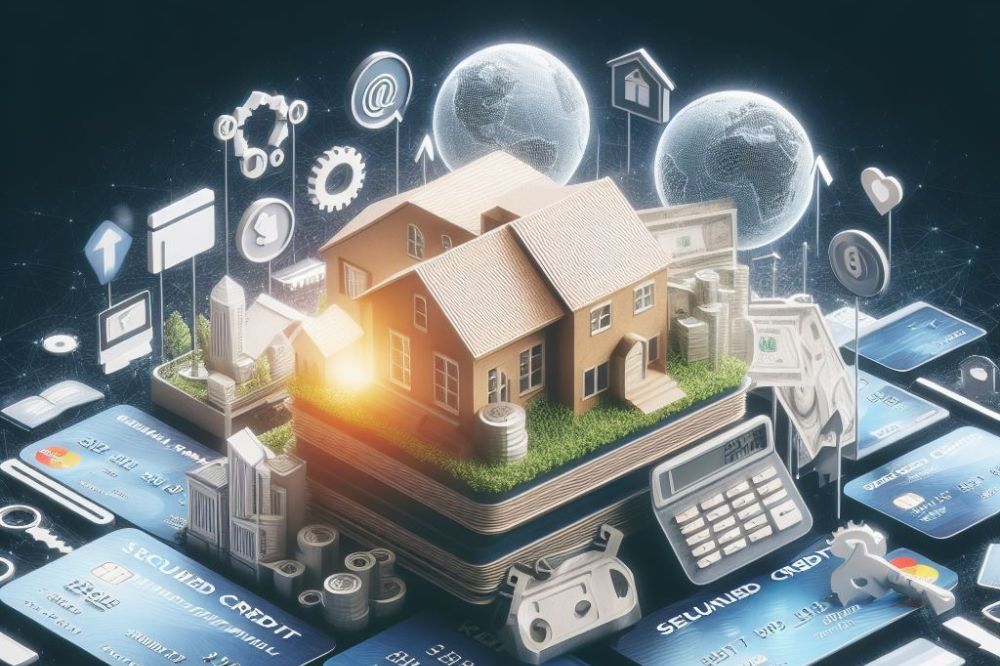Understanding how bankruptcy impacts your credit score is crucial for financial planning. Bankruptcy has a significant and lasting effect on your creditworthiness, influencing your ability to secure loans, credit cards, or favorable interest rates in the future. By delving into the historical context of bankruptcy laws and credit reporting systems, we can better grasp the intricate relationship between filing for bankruptcy and its repercussions on one’s credit score. Exploring this connection can empower individuals to make informed decisions about their financial well-being and take proactive steps towards rebuilding their credit post-bankruptcy.
Key Takeaways
- Understanding Bankruptcy: Knowing the implications of bankruptcy on your credit score is crucial for making informed financial decisions.
- Assessing the Damage: Evaluate the extent of the impact bankruptcy has had on your credit score to create a personalized recovery plan.
- Initial Steps to Recovery: Begin by reviewing your credit report, setting a budget, and exploring credit repair options to kickstart your credit score improvement journey.
- Rebuilding Creditworthiness: Focus on timely payments, keeping credit utilization low, and diversifying your credit mix to gradually enhance your creditworthiness.
- Strategies for Improvement: Implement strategies like becoming an authorized user, applying for a secured credit card, and seeking credit counseling to expedite credit score enhancement.
- Making Big-Ticket Purchases: Exercise caution when making significant purchases post-bankruptcy to avoid potential setbacks in your credit score recovery process.
Understanding Bankruptcy
Definition and Types
Bankruptcy is a legal process where individuals or businesses unable to repay debts seek relief. Chapter 7 bankruptcy involves selling assets to pay creditors, while Chapter 13 bankruptcy creates a repayment plan. These two types differ in asset retention and debt discharge. Declaring bankruptcy has legal implications, including court involvement and credit report impact.
Bankruptcy Process
Filing for bankruptcy entails several steps, starting with gathering financial documents and attending credit counseling. Seeking legal counsel is crucial to navigate the complex procedures accurately. Court appearances are required, where a trustee oversees asset distribution based on the type of bankruptcy declared. Documentation such as income statements and asset valuations must be provided for review.
Impact on Credit Score
Bankruptcy significantly lowers credit scores due to the debt discharge or reorganization involved. The negative effect remains on credit reports for years, affecting future borrowing capabilities. Rebuilding credit post-bankruptcy poses challenges like obtaining new lines of credit with higher interest rates and lower limits. It requires consistent payment history and responsible financial management to improve creditworthiness.
Assessing the Damage
Credit Score Drop
After filing for bankruptcy, credit scores experience a significant drop, impacting financial stability. Chapter 7 bankruptcy typically results in a more substantial credit score decline compared to Chapter 13. On average, credit scores can plummet by over 200 points post-bankruptcy.
The type of bankruptcy filed plays a crucial role in determining the extent of credit score damage. Chapter 7 bankruptcy tends to have a more severe impact on credit scores due to the complete discharge of debts, leading to a significant drop. In contrast, Chapter 13 involves a repayment plan, resulting in a relatively less severe credit score decline.
Duration of Impact
The impact of bankruptcy on credit scores is long-lasting, with bankruptcy remaining on credit reports for up to ten years. However, its influence gradually diminishes over time as individuals demonstrate responsible financial behavior. Despite the initial setback, individuals can start rebuilding their credit shortly after bankruptcy.
Over time, as negative information ages and individuals establish positive credit habits, there is a gradual improvement in credit scores. While the initial impact of bankruptcy may be severe, consistent efforts towards financial responsibility and timely payments can lead to steady credit score recovery over several years.
Factors Influencing Severity
Several factors influence the severity of the impact of bankruptcy on credit scores. Timely payments on remaining debts post-bankruptcy play a vital role in demonstrating financial responsibility and aiding in credit recovery. Maintaining low credit utilization ratios by not maxing out credit cards contributes positively to rebuilding credit.
Moreover, the debt-to-income ratio is critical in determining how quickly an individual’s credit score rebounds after bankruptcy. A lower debt-to-income ratio indicates better financial health and increases the likelihood of creditors extending new lines of credit or loans post-bankruptcy.
Initial Steps to Recovery
Review Credit Report
After bankruptcy, reviewing credit reports is crucial to understand the financial impact. Obtain reports from major bureaus.
Understanding the reports helps identify errors or inaccuracies that can be disputed for correction.
Disputing inaccuracies promptly ensures a clean slate for rebuilding credit post-bankruptcy.
Budget Planning
Creating a post-bankruptcy budget is essential for financial stability. Track expenses and income meticulously.
Managing finances effectively involves setting realistic goals and sticking to the budget religiously.
By tracking every penny spent, individuals can prevent overspending and prioritize debt repayment.
Financial Advice
For individuals post-bankruptcy, seeking expert financial advice is paramount for a fresh start. Rebuilding credit requires strategic planning.
Improving financial health involves responsible credit card use and timely bill payments.
Professional help in financial planning can provide personalized guidance tailored to individual circumstances.
Rebuilding Creditworthiness
Secured Credit Cards
Secured credit cards are beneficial for rebuilding credit as they require a security deposit, reducing risk for lenders. They function differently from traditional credit cards by using the deposited amount as collateral. To use secured credit cards effectively, start with a low credit limit and make small purchases, paying off the balance in full each month. This responsible usage helps demonstrate financial reliability to creditors.

Installment Loans
Utilizing installment loans post-bankruptcy can positively impact credit scores by showcasing responsible borrowing behavior. Timely payments on installment loans contribute to rebuilding creditworthiness by reflecting consistent repayment habits. When selecting installment loans after bankruptcy, opt for manageable monthly payments and terms that align with your financial capacity. This cautious approach ensures you can meet repayment obligations without straining your finances.
Payment Consistency
Consistent and timely payments play a pivotal role in credit score recovery post-bankruptcy. By making on-time payments regularly, you showcase financial discipline and reliability to creditors. This positive payment history gradually boosts your credit score over time, signaling improved creditworthiness. To maintain payment consistency, set up automatic payments or reminders to ensure bills are paid promptly each month. Create a budget to track expenses and allocate funds for loan repayments.
Strategies for Improvement
Credit Utilization Ratio
Credit utilization ratio is the amount of credit you’re using compared to your total available credit. Maintaining a low credit utilization ratio is crucial for a healthy credit score. High ratios can signal financial distress and lower credit scores. To optimize this, keep your ratio below 30% by paying off balances regularly.
When your credit utilization is high, it indicates that you might be overextended financially. Lenders see this as risky, potentially leading to a drop in your credit score. To improve, aim to lower your balances or request a credit limit increase to reduce the ratio.
To enhance your creditworthiness, focus on reducing balances on revolving accounts like credit cards. Paying down debts consistently can positively impact your credit score over time.
Debt Management Plans
Debt management plans are structured repayment programs designed to help individuals settle their debts systematically. These plans involve negotiating with creditors to establish manageable payment terms based on your financial situation.
After bankruptcy, debt management plans offer a structured approach to repay debts while avoiding further financial pitfalls. They allow you to make affordable monthly payments towards clearing outstanding balances.
Implementing a debt management plan post-bankruptcy can show creditors that you’re committed to repaying debts responsibly. Consistent and timely payments through these plans reflect positively on your credit report.
Making Big-Ticket Purchases
Preparation Steps
When considering bankruptcy, preparatory steps are crucial. Begin by assessing your financial situation honestly. Research alternatives to bankruptcy such as debt consolidation or negotiation. Understand the long-term implications of each option.
Prepare emotionally for the process by seeking support from loved ones or a therapist. Create a detailed budget to manage expenses during and after bankruptcy. Consult with a financial advisor to explore all possibilities.
Timing Considerations
The timing of filing for bankruptcy is critical. Optimal timing can impact the outcome significantly. Filing too early may result in missed debts, while filing too late can lead to more severe financial consequences.
Understanding the legal aspects of timing is essential. Different types of bankruptcy have specific requirements and waiting periods. Seek legal advice to determine the best time to file based on your unique circumstances.

Loan Options
Post-bankruptcy, individuals have loan options available to rebuild their credit. Secured loans, such as a secured credit card or car loan, are accessible with lower credit scores. These loans require collateral but can help improve credit over time.
Unsecured loans, like personal loans or credit cards, may also be an option but often come with higher interest rates. When selecting a loan post-bankruptcy, consider the terms carefully. Choose loans that you can manage responsibly to rebuild your credit effectively.
Monitoring Progress
Regular Credit Checks
Regularly checking credit reports after bankruptcy is crucial for monitoring credit score improvement. By reviewing your credit report frequently, you can track changes and detect errors promptly. This proactive approach helps in identifying any fraudulent activities early on.
Credit checks post-bankruptcy are essential to ensure accuracy in reporting and to prevent identity theft issues. Reliable credit monitoring services like Credit Karma or Experian can provide regular updates on your credit status. These services offer insights into your credit utilization, payment history, and overall credit health.
Understanding Score Changes
Understanding the fluctuations in credit scores is vital for post-bankruptcy financial recovery. Various financial activities like making timely payments, reducing debt, and avoiding new credit applications can positively impact credit scores. On the contrary, missing payments or maxing out credit cards can lead to a decrease in credit scores.
Interpreting credit score changes accurately requires knowledge of the factors affecting them. By comprehending how payment history, credit utilization, length of credit history, types of credit used, and new credit inquiries influence scores, individuals can make informed decisions to improve their financial standing.
Long-Term Financial Health
Emergency Fund
Building an emergency fund is crucial after bankruptcy to prepare for unexpected expenses. It acts as a safety net, ensuring financial stability in times of crisis.
Emergency funds play a vital role in preventing individuals from falling back into debt or damaging their credit score further. They provide a sense of security and peace of mind.
To establish and grow an emergency fund, start by setting achievable savings goals. Consistently contribute a portion of your income to the fund each month. Consider automating transfers to make saving easier.
Financial Literacy
Improving financial literacy is key to credit recovery post-bankruptcy. Understanding how credit works can help individuals make informed decisions and rebuild their financial health.
Enhancing financial knowledge post-bankruptcy offers numerous benefits, including better money management skills, improved budgeting capabilities, and the ability to make sound financial choices.
Resources such as online courses, workshops, and personal finance books can help individuals enhance their financial literacy skills. Seeking guidance from financial advisors or credit counselors can also provide valuable insights.
Success Stories
Recovery Timelines
Rebuilding a credit score after bankruptcy is a gradual process that typically takes several years. Initially, credit scores may plummet significantly but can start to improve within 12 to 18 months post-bankruptcy. Factors such as timely bill payments, responsible credit utilization, and diversification of credit accounts can accelerate the recovery process.
It’s crucial to understand that various elements can either hasten or impede credit score recovery. [List Start] While consistent on-time payments and minimal credit card balances can boost scores, [List End] mistakes like late payments or maxing out credit limits can hinder progress. Patience and persistence are key during this period, as improvement may be slow but steady.
Real-Life Examples
One inspiring story is Sarah, who diligently worked on rebuilding her credit after bankruptcy. Through meticulous budgeting and disciplined financial habits, she managed to increase her credit score by over 100 points within two years. Sarah’s dedication to financial responsibility serves as a beacon of hope for others facing similar challenges.
Another example is John, who faced bankruptcy due to unforeseen medical expenses. Despite the setback, John focused on rebuilding his credit by securing a secured credit card and making small purchases that he promptly paid off. Over time, his credit score gradually rose, showcasing the power of perseverance and smart financial decisions.
Real-life examples like Sarah and John highlight the resilience and determination required to bounce back from bankruptcy. Their journeys underscore the importance of [List Start] creating a realistic budget, [List End] establishing healthy financial habits, and seeking guidance from financial advisors or credit counseling services.
Final Remarks
Now that you understand how bankruptcy affects your credit score and have learned about the steps to rebuild your financial health, it’s time to take action. By implementing the strategies discussed and staying committed to monitoring your progress, you can pave the way for a brighter financial future. Remember, setbacks happen, but with determination and perseverance, you can overcome them and achieve your goals.
Take charge of your financial well-being today by applying what you’ve learned. Your credit score is not set in stone, and with the right approach, you can improve it over time. Keep track of your progress, celebrate small victories along the way, and stay focused on your long-term financial stability. Your future self will thank you for the efforts you put in now.
Frequently Asked Questions
How does bankruptcy affect my credit score?
Bankruptcy can significantly lower your credit score, making it challenging to qualify for new credit. It stays on your credit report for several years, impacting your ability to get loans or credit cards at favorable terms.
What are the initial steps to take after filing for bankruptcy?
After filing for bankruptcy, focus on creating a budget, building an emergency fund, and establishing a solid financial plan. Monitor your credit report regularly to ensure accuracy and start rebuilding your credit slowly but steadily.
How can I rebuild my creditworthiness after bankruptcy?
To rebuild your creditworthiness post-bankruptcy, consider getting a secured credit card, making timely payments, keeping credit utilization low, and diversifying your credit mix. Consistent positive behavior over time can help improve your credit score.
Is it possible to make big-ticket purchases after bankruptcy?
While it may be challenging to make significant purchases immediately after bankruptcy, improving your credit score through responsible financial habits can eventually help you qualify for loans with better terms and lower interest rates.
How can I monitor my progress in rebuilding my credit post-bankruptcy?
Regularly monitoring your credit report from all three major bureaus is crucial in tracking your progress. Look out for any errors or discrepancies that could be negatively impacting your score and continue practicing good financial habits.




